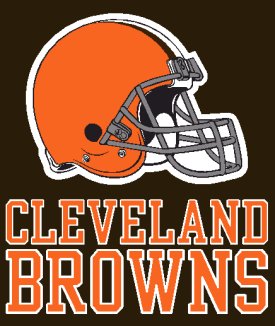Friday, July 09, 2010
I've developed a current obsession with this Heineken Light series of commercials (of which there are two currently I believe), which seem to rely on the premise that a couple of younger men have struck it rich and moved to some sort of retirement community and developed a friendship with a couple of older men, in particular, the star of the commercials (or breakout character, if that can exist in commercials) is Maurice portrayed by Bill Cobb, a veteran character actor, recognized best (by me) for his role as Moses, the janitor in The Hudsucker Proxy. In the first ad (well first in that I put it first since I believe they came out at the same time), the young dudes (Jamie and Gavin are apparently their names, according to Heineken) are hanging out at Maurice's house, and notes that Maurice has led an "active social life" (he repeats this - emphasizing the fact - a "very active social life," based on the pictures of women covering his wall. He then digs through Maurice's record collection and discovers, to his surprise, a Peter Cetera record. Not supposing this would be the type of music Maurice would like, the young dude questions Maurice - "you like Cetera?." Maurice answers with a pronounced and elongated "No" (possibly the best individual line in the episode by itself, combined with his expression) and then goes on to teach a lesson - he doesn't like Cetera, but the ladies love Cetera, and if you love the ladies, by default, QED, you love Cetera - logic 101 (well he doesn't say QED, but you get the point.) Gavin (after watching both commercials again and reading some descriptions I think I've concluded that this young dude is Gavin) says, in part disbelief, "so I love Peter Cetera?"as Restless Heart by Peter Cetera comes on. I'm not sure how this makes me want a Heineken Light, but it's genius. Most Interesting Man in the World, you have a new rival for best beer commercial.
The second commercial is slightly inferior, but still clearly worth watching. The best Maurice line is the lack of a line - when the young dude points out that Maurice had dated a Pointer sister - Maurice merely holds up two fingers, correcting him, to which the young dude now correctly announces, "two pointer sisters." Maurice's only other line comes when he tells the other young dude ("Jamie") to mow his lawn. Brilliance.
Thursday, July 01, 2010

I was watching the Met game today, as I often do, and play-by-play man Gary Cohen, commented that the Nationals, who the Mets were playing against, make no mention of their progenitors, the Montreal Expos, anywhere in their ballpark, instead playing homage to the previous teams in their city, the two American League versions of the Washington Senators. Cohen complained about this, siding with me on a rant I have often gone on about with friends. Namely, that when a franchise moves, its history is that of the franchise that it became, rather than a franchise that was in its city before but moved somewhere else.
The prime example of this in my mind is when the old Cleveland Browns moved to Baltimore and became the Ravens, and a couple years later the new Browns were formed. There was such outrage in the Cleveland area that somehow (and I'm not sure what the legal basis was for this (this ridiculous settlement which I will not acknowledge since it's pretty much changing history) the Ravens were forced to use old Baltimore Colts statistics (referencing the last move which created a cartoonishly villainous owner universally hated by the city from which the team was moving) in all of their media guide. This was, of course, patently ridiculous. Ignoring the fact that this left a gap between 1983 and 1996 where the team didn't exist, there was already another team with this history. And honestly, neither of these is the true point - this team was not the Colts - it was the damn Browns - they kept all the players, the coaches, the front office personnel, the owner - change of name and all, they were the Browns, and they have the Browns history.
When the Browns started up again in 1999, they laid claim, by legal settlement and popular sentiment, to the legacy of the old Browns which was AN ENTIRELY DIFFERENT TEAM. Jim Brown did not play for the new Cleveland Browns - he played for the team that is now the Baltimore Ravens. Same with Bernie Koser and Ozzie Newsome and Otto Graham. They're not part of the new Cleveland Browns legacy. It would be like if the Nationals started claiming Walter Johnson was part of their history, or if the Mets claimed Pee Wee Reese or Christy Mathewson (the Mets already come too close with their Jackie Robinson shrine, but I'm willing to cut them some slack because of his off-the-field importance (I also know the Mets took their colors from the old teams but that's a far cry from stealing their history), or is the Kansas City Royals claimed...well there weren't really any good Kansas City Athletics (and if they were, they were traded to the Yankees anyway). History follows the franchise, not the city - when a team moves the players and personnel stay the same - it's only logical.
Now, I'm not saying if you're a Browns fan you have to follow the team to Baltimore - you have full rights to both have rooted for the old Browns, take pride in their history that you rooted for, and then switch to the new Browns if you'd like - that's entirely reasonable. But just recognize - it's not the same team.
Subscribe to:
Posts (Atom)